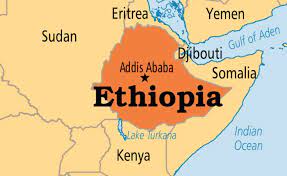In a report issued on Tuesday, EHRC said kidnappers often target individuals especially children with a motive of ransom.
The report states that many victims who couldn’t pay ransoms suffered severe human rights violations, including killings.
The commission’s findings indicate that these abductions are being carried out by a range of actors, including violent forces, organized criminal groups, and even some members of government security forces.
While many of these abductions are financially motivated, with captors demanding high ransom payments for the release of their victims, some occur for political purposes or in retaliation.
The report cites several incidents, including the abduction of Debark University students near Gerba Guracha in the Oromia region, the kidnappings of four World Vision health workers in West Gondar Zone in Amhara region.
The EHRC reports that in June 2024, Bekele Kacha, administrator of Seden Sodo district, was abducted and later found dead despite his family paying a ransom.
Rakeb Mesfin, the acting commissioner of the EHRC, called for comprehensive measures to address the issue, stating, “To put a permanent end to the ongoing disturbing acts of kidnapping in various parts of Ethiopia, it is essential to take effective measures, including addressing the root causes and triggers of kidnapping, resolving the conflict through peaceful means, and establishing lasting peace.”
MG/abj/APA


